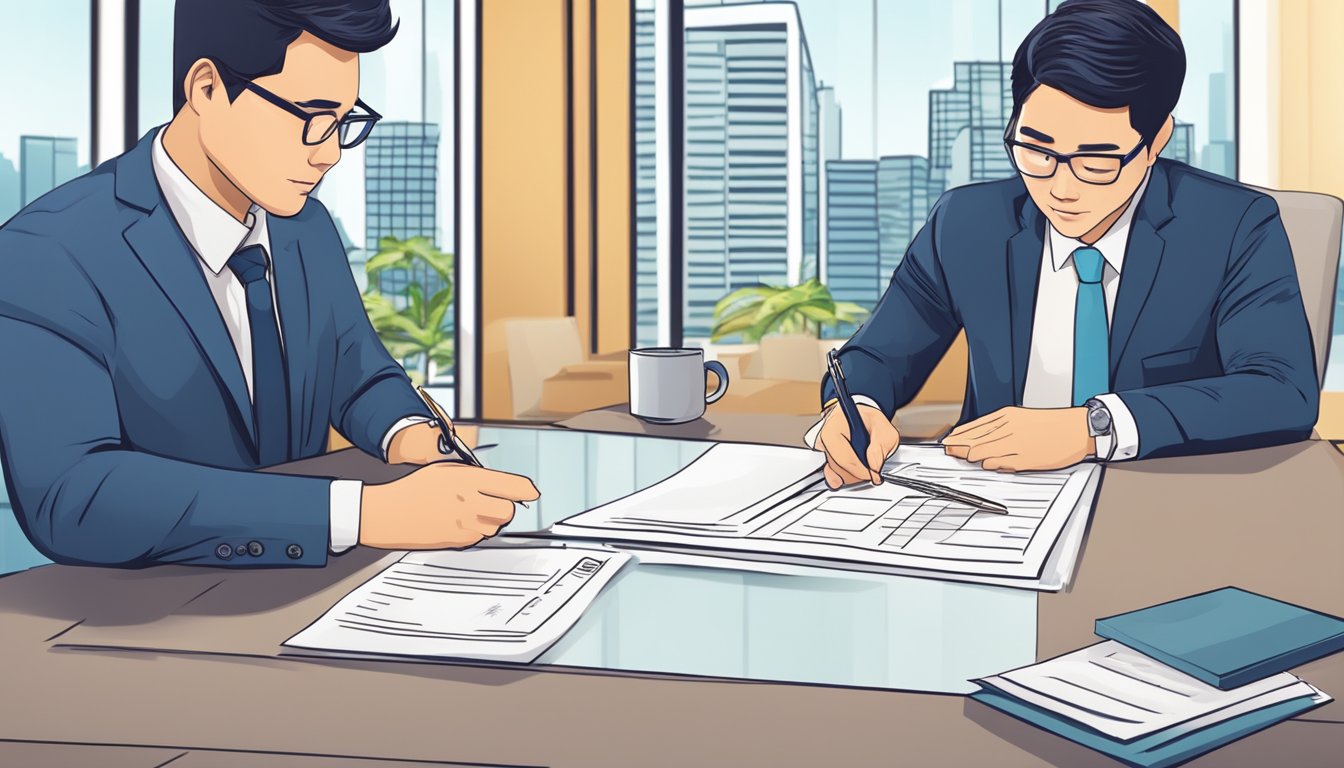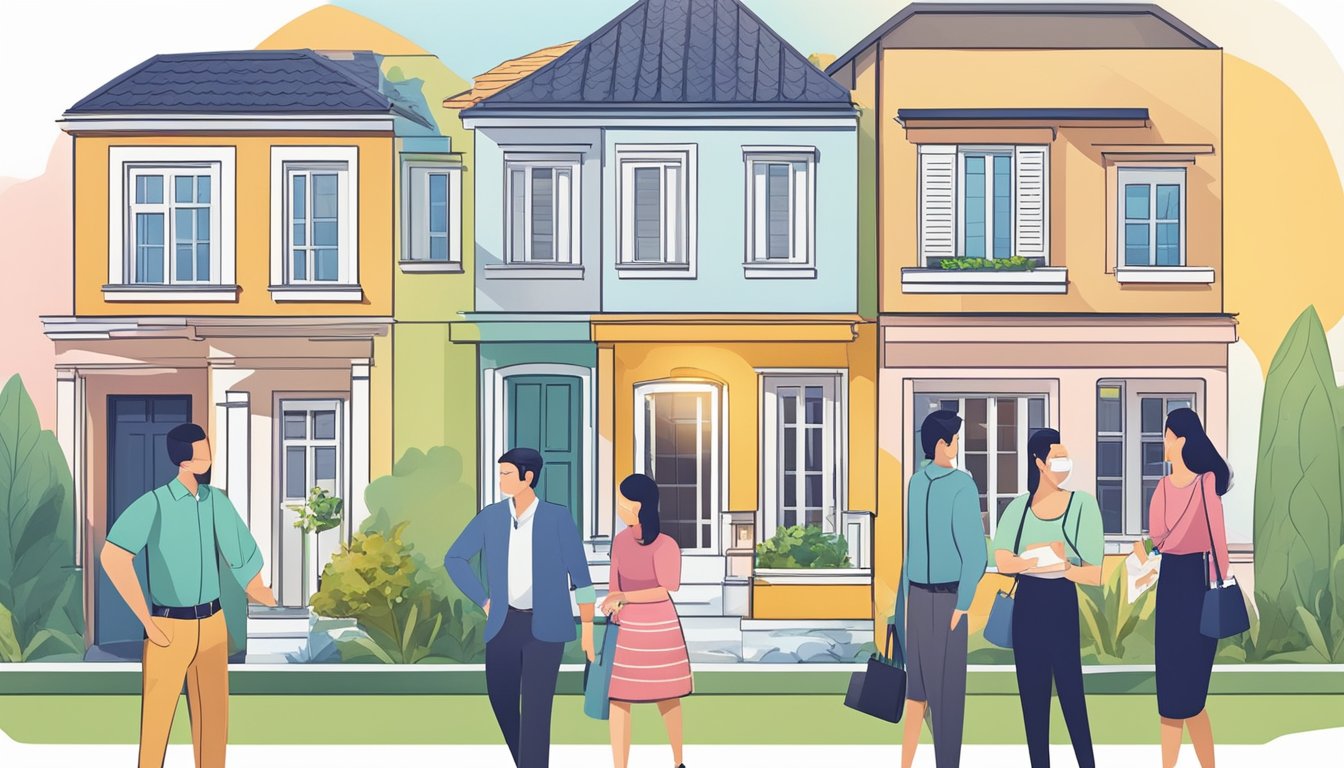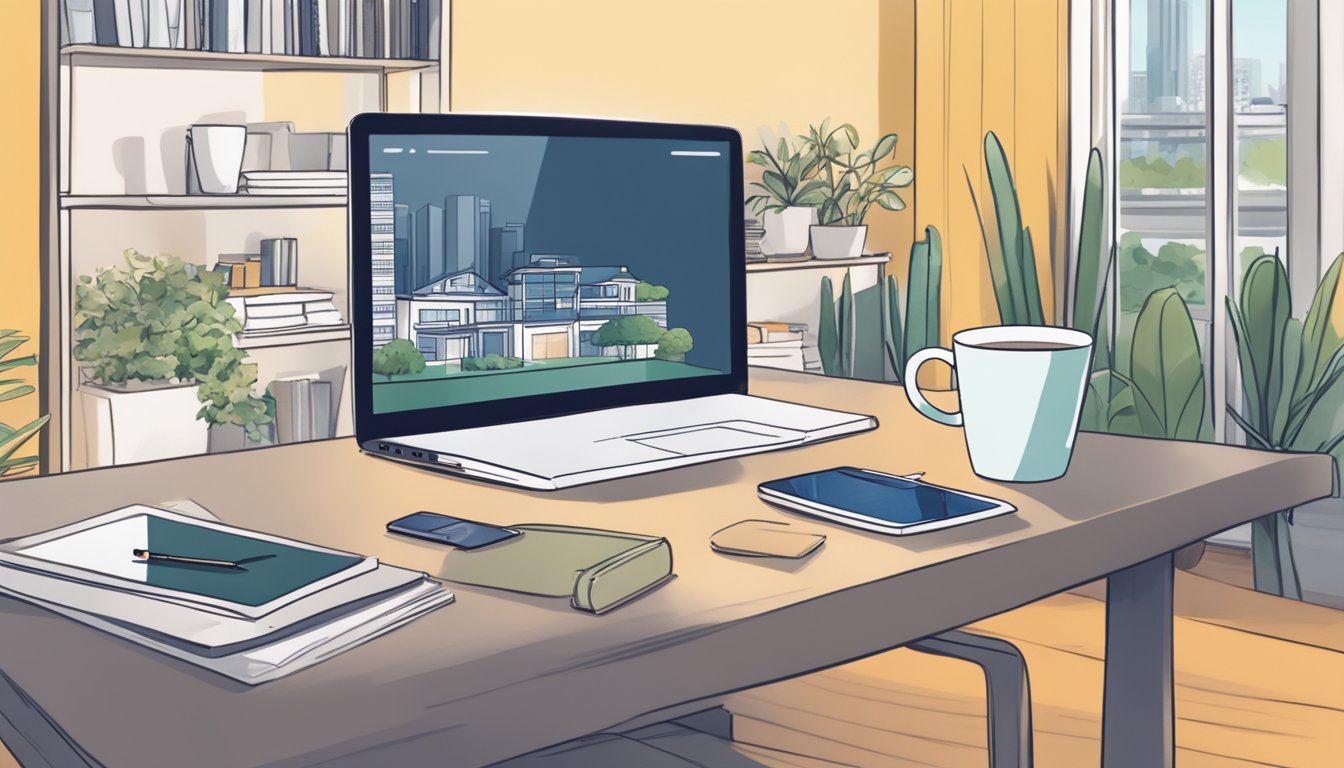Buying a second property in Singapore can be a great investment opportunity, but it is important to understand the process and financial considerations before making a purchase. Whether you are looking for a second home or an investment property, there are several factors to consider to ensure that you make the right decision.

Before you start your search for a second property, it is important to assess your financial situation and determine your budget. Consider how much you can afford to spend on a down payment, monthly mortgage payments, and other expenses associated with owning a second property. It is also important to research the different types of properties available, such as private condominiums, landed properties, and Housing and Development Board (HDB) flats, to determine which type of property best suits your needs and budget.
Once you have determined your budget and property type, it is time to start the purchase process. This involves finding a property that meets your needs and budget, making an offer, and securing financing. It is important to work with a trusted real estate agent and mortgage broker to ensure that you find the right property and secure the best financing options. By following these steps, you can successfully purchase a second property in Singapore and enjoy the benefits of property ownership.
Key Takeaways
- Assess your financial situation and determine your budget before starting your search for a second property.
- Research the different types of properties available to determine which type of property best suits your needs and budget.
- Work with a trusted real estate agent and mortgage broker to find the right property and secure the best financing options.
Preparing to Buy a Second Property in Singapore

Before you dive into the real estate market to purchase a second property in Singapore, there are some important things you need to consider. Here are some key factors to keep in mind:
Understanding the Singapore Property Market
The Singapore property market is constantly changing, and it’s important to stay up-to-date with the latest market trends. You should research the current market conditions, including property prices, interest rates, and mortgage options. This information will help you make informed decisions about your investment.
Assessing Your Financial Readiness
Buying a second property in Singapore is a significant financial commitment. You need to assess your financial readiness before making any decisions. This includes evaluating your budget, loan-to-value (LTV) ratio, total debt servicing ratio (TDSR), and cash down payment. You should also consider the minimum cash down payment required and the affordability of the property.
Eligibility Criteria for Owning Multiple Properties
There are eligibility criteria you need to meet before owning multiple properties in Singapore. For instance, if you currently own an HDB flat, you need to fulfill the minimum occupation period (MOP) before buying a second property. Additionally, if you’re a foreigner, you need to meet certain residency criteria before purchasing a private property. Singapore citizens and permanent residents (PRs) have different eligibility criteria as well.
To summarize, before buying a second property in Singapore, you need to understand the real estate market, assess your financial readiness, and meet the eligibility criteria for owning multiple properties. By doing so, you can make informed decisions and ensure a successful investment.
The Purchase Process and Financial Considerations

Buying a second property in Singapore can be a smart investment decision, but it requires careful planning and consideration of various financial factors. Here are some key points to keep in mind as you navigate the purchase process.
Navigating Additional Costs and Stamp Duties
When purchasing a second property in Singapore, you will need to be prepared for additional costs and stamp duties. The Additional Buyer’s Stamp Duty (ABSD) is a tax that is levied on buyers who purchase a second or subsequent property in Singapore. The amount of ABSD that one has to pay varies depending on their residency status, and it can significantly increase the cost of investing in or owning a property in the country. Make sure to factor in these additional costs when calculating your budget and expected returns.
Financing Your Investment
Financing a second property can be challenging due to loan restrictions and cooling measures in Singapore. However, there are still options available to those who are looking to invest. Consider HDB loans or working with a property agent to find the best financing options for your investment goals. Keep in mind that a larger downpayment may be required for a second property, so make sure to factor this into your financial planning.
Maximising Your Investment Potential
To maximise your investment potential, it is essential to consider factors such as investment horizon, yield, and rental income. Calculate potential rental yield and capital appreciation to estimate the return on investment (ROI). Develop a strategy considering loss mitigation and expected capital gains. Additionally, it is crucial to seek professional advice from a wealth planning manager or property agent to ensure that you are making the best investment decisions for your financial goals.
When investing in a second property in Singapore, it is important to keep in mind that it can be a profitable source of passive income and capital appreciation. However, it requires careful financial planning and consideration of various factors to ensure that you are making the most of your investment. With the right strategy and professional guidance, you can successfully navigate the purchase process and maximise your investment potential.
Frequently Asked Questions

What are the exciting possibilities for utilising CPF to purchase an additional property?
If you’re a Singaporean citizen or permanent resident, you can use your CPF Ordinary Account savings to pay for the downpayment and monthly mortgage instalments for your second property. However, do note that there are certain limits to the amount you can use, and you’ll also need to set aside the required amount in your CPF account for retirement.
How much ready cash should one have on hand to acquire a second property?
Besides the downpayment, you’ll also need to have enough cash on hand to cover other expenses such as legal fees, stamp duty, and renovation costs. As a rule of thumb, you should have at least 25% of the purchase price in cash.
What’s the buzz about loan-to-value ratios for securing a loan on a second property?
Loan-to-value (LTV) ratios refer to the amount of loan you can get as a percentage of the property’s value. For second properties, the LTV ratio is typically lower than for first properties, meaning you’ll need to put down a higher downpayment. Currently, the LTV ratio for second properties is capped at 45%.
Can a couple each invest in their own separate properties and how does that work?
Yes, a couple can each invest in their own separate properties. However, do note that the Additional Buyer’s Stamp Duty (ABSD) will apply if one or both of you already own a property. The ABSD rates for second properties are higher than for first properties.
What’s the latest scoop on avoiding Additional Buyer’s Stamp Duty for an extra property acquisition?
There are a few ways to avoid or minimise the ABSD for a second property acquisition. One way is to sell your existing property before buying a new one. Another way is to transfer ownership of your existing property to a family member who doesn’t own any property, and then buy the second property jointly with them.
What tax implications should one anticipate when investing in a second property?
When you invest in a second property, you’ll need to pay property tax on it. The property tax rate for residential properties is progressive, meaning the more valuable your property, the higher the tax rate. Additionally, if you rent out your second property, you’ll need to pay income tax on the rental income.




